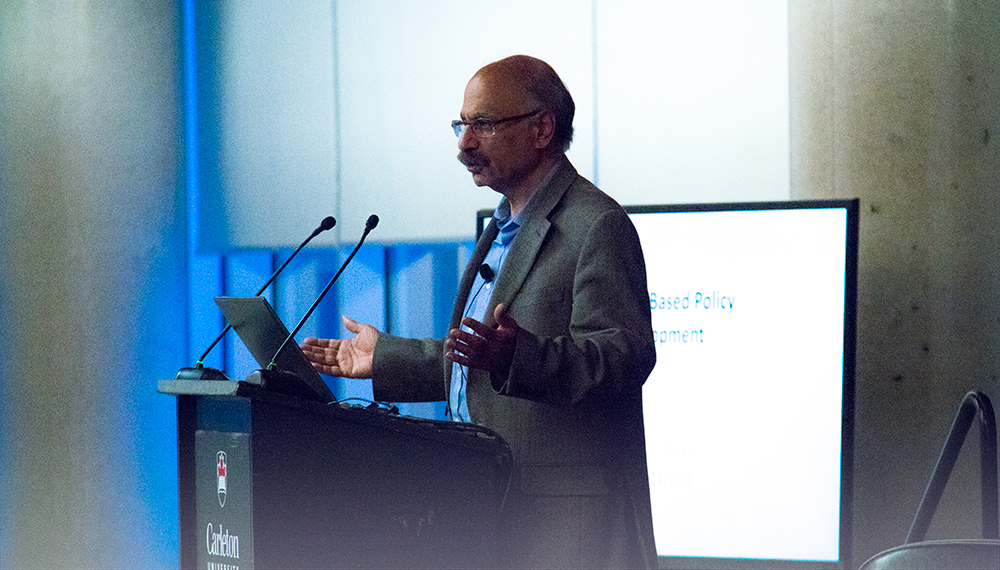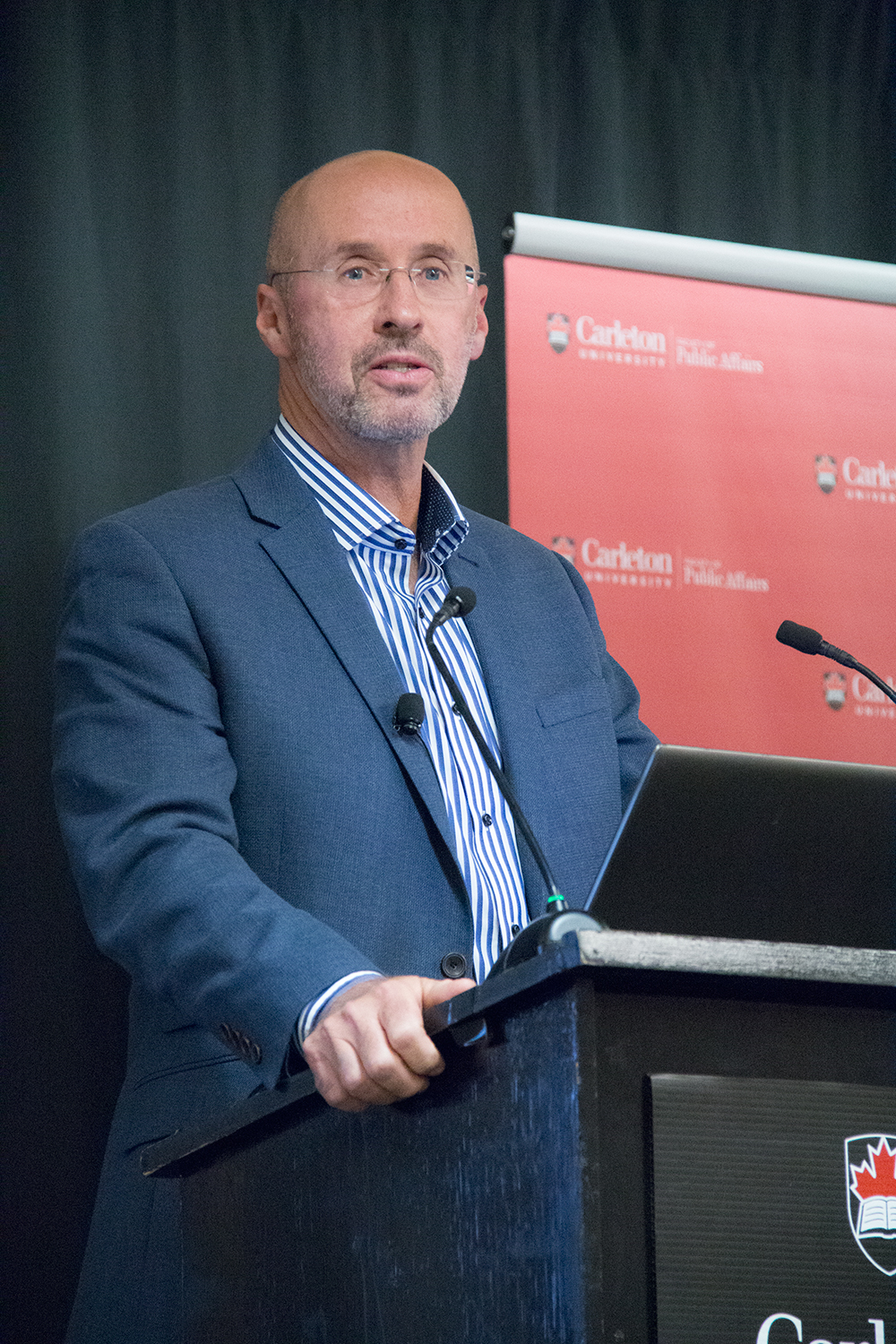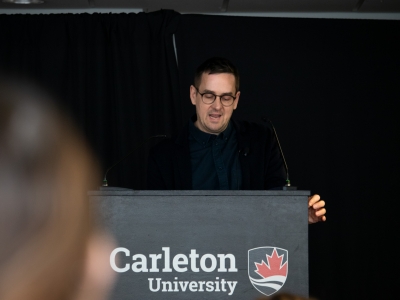FPA Closing Panel Discussion on “A New Era of Information in Decision Making”
In 2008, Kevin Page was appointed as the first-ever Parliamentary Budget Officer, charged with reporting on the financial implications of policy proposals. In his recent Closing Panel lecture as part of FPA Research Month, Mr. Page described his first conversation with the Speaker of the House of Commons.
“The first thing he told me was that no one would ever read my reports,” recalled Mr. Page. “I thought, have we failed to such a degree that we can’t even provide reports of financial consequences? So I took that as a challenge to create reports they would want to read.”
Not only did his Parliamentary Budget Office create reports for the governing Conservatives, but Mr. Page saw his role as providing information for all members of Parliament–and all Canadians.
“I never thought it was my job to change anyone’s opinion, or to change the decision on something like a fighter plane,” he said, as he recalled the heavy criticism he received from the Harper government. “I wanted to raise understanding…through facts and details that would reduce uncertainty around a decision and spark higher-level discourse.”
Mr. Page’s insights were part of a wide-ranging discussion recently at Carleton University, which featured talks by both Mr. Page and Munir Sheikh, an adjunct professor at Carleton University and the former Chief Statistician of Canada, who resigned from his position when the Harper government cancelled the long-form census in 2010.
Defending Evidence-based Decisions
 In his remarks, Dr. Sheikh offered a highly critical analysis of government decision-making, based on his decades of experience in the public service.
In his remarks, Dr. Sheikh offered a highly critical analysis of government decision-making, based on his decades of experience in the public service.
“There’s a clear distinction between starting with evidence versus deciding on a policy first and looking for evidence to back it up,” said Dr. Sheikh, who cited the elimination of the long-form census as one example. “Many people don’t realize that the long-form census was the anchor for all household data in Canada. That’s why it was the first thing the new government re-established.”
Dr. Sheikh outlined four types of decision-making in politics:
- bad decisions that are easy to implement
- good decisions that are easy to implement
- good decisions that are hard to implement
- bad decisions that are hard to implement
He said the first two were fairly common and he was surprised by how often good decisions that are hard to implement were carried out. But he was shocked at how many times bad decisions that are hard to implement were put into place.
The two speakers also had advice for a questioner who asked about surviving in the public service when evidence-based advice is discounted. Dr. Sheikh recalled a government Minister who threw a briefing book at him when he didn’t like Dr. Sheikh’s advice. Despite that, the economist returned the next week with the same information.
“This is the hardship we as public servants can face. But when our advice is ignored, it’s even more important that we keep giving it. Our job is to give the best possible advice we can,” he argued.
After their remarks, Dr. Sheikh and Mr. Page were joined onstage for a discussion with researchers from the Faculty of Public Affairs, including Stephen White, an Assistant Professor in the Department of Political Science, who emphasized the significance of conflicts between competing values and beliefs held by many citizens, which limit the potential for evidence to inform public policy decisions. He argued that politicians’ desire to avoid addressing very real conflicts between voters’ values might be why evidence has so often taken a back seat to other considerations in policy decisions.
Marc-André Gagnon, an Associate Professor in the School of Public Policy and Administration, discussed the manipulation of information within the medical and pharmaceutical industries, including the use of paid bloggers, PR-driven activist movements, corporate-friendly research partnerships, and supposedly “academic” journals created by corporate interests.
Tracey Lauriault, an Assistant Professor of Critical Media and Big Data in the School of Journalism and Communication, asked how we build an evidence-based society when evidence is not always collected or analyzed—especially evidence from outside the government. She argued that “evidence, information and data do not speak for themselves” and that expertise is required to translate raw data into information, especially technical expertise and knowledge about how government works, in order to bring evidence into the policy making arena.
The Closing Panel was the final event of 2016 FPA Research Month, which welcomed more than 2,000 visitors to 37 different events hosted by the academic units within the Faculty of Public Affairs.
Thursday, March 31, 2016 in Department of Economics, Economy, FPA Research Series, News, Policy
Share: Twitter, Facebook




